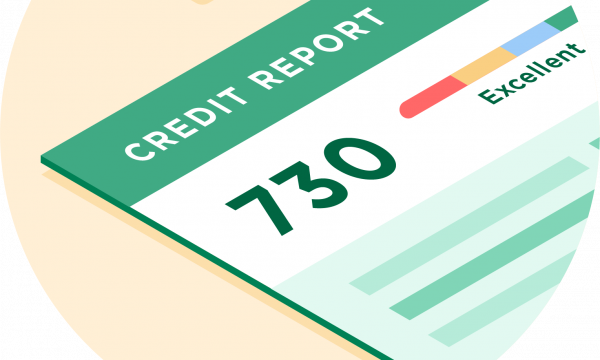How Long Does a Foreclosure Stay on Your Credit Reports?
A foreclosure stays on your credit reports for seven years from the first missed payment — but you can start restoring your credit right away.

Many, or all, of the products featured on this page are from our advertising partners who compensate us when you take certain actions on our website or click to take an action on their website. However, this does not influence our evaluations. Our opinions are our own. Here is a list of our partners and here's how we make money.
Foreclosure happens when you default on your mortgage and your lender takes ownership of the home.
A foreclosure stays on your credit reports for seven years from the date of the first missed payment, bringing down your credit scores. After that period of time, the foreclosure mark should automatically fall off your reports. But you can start working to restore your credit scores right away.
How a foreclosure affects your credit
A foreclosure's effect on your credit will depend on your credit standing before the negative mark hit. The higher your score, the greater the likely impact.
In general, though, you can expect a foreclosure to drop your score by 100 or more points, according to Equifax, one of the major credit reporting bureaus.
If your credit score declines as a result of foreclosure, not having good credit can be problematic because it may impact other areas of life. In some states, for example, potential employers may ask to access your credit report as part of a job application.
You may also pay higher interest rates when borrowing money, not qualify for certain credit cards and pay a premium for homeowners insurance and auto insurance.
Stress less. Track more.
See the full picture: savings, debt, investments and more. Smarter money moves start in our app.
What if a foreclosure doesn’t fall off after seven years?
The credit reporting process is imperfect. That can occasionally result in a foreclosure or other derogatory mark not falling off automatically after seven years.
In that case, you can dispute the credit report error.
You can rebuild much sooner
Don't let the seven-year timeline stop you from acting — you can begin working to rehabilitate your credit score right away. Help offset the negative mark by stacking up positive data on your credit reports:
- Pay all bills on time. Payment history is the biggest factor affecting credit scores. You want to build up a long track record of on-time payments so you look good to potential lenders in the future.
- Use no more than 30% of your credit limits. The second-biggest factor in scores is how much of your credit limits you use, which is called credit utilization. The lower your credit utilization, the better for your score.
- If needed, look into ways to rebuild credit such as getting a secured credit card or a credit-builder loan.
Can you get a mortgage after foreclosure?
While foreclosure hurts your credit and stays on your account for up to seven years, it is still possible to get a mortgage post-foreclosure.
The Consumer Financial Protection Bureau advises that consumers with a past foreclosure may be eligible for Federal Housing Administration loans. Another possibility is a subprime mortgage, though interest rates on those may greatly exceed other mortgages. There are also loans, like non-QM loans, that cater to borrowers who have a previous bankruptcy or foreclosure.
» MORE: Get your free credit score with NerdWallet
Stress less. Track more.
See the full picture: savings, debt, investments and more. Smarter money moves start in our app.
Article sources
NerdWallet writers are subject matter authorities who use primary,
trustworthy sources to inform their work, including peer-reviewed
studies, government websites, academic research and interviews with
industry experts. All content is fact-checked for accuracy, timeliness
and relevance. You can learn more about NerdWallet's high
standards for journalism by reading our
editorial guidelines.
Related articles









